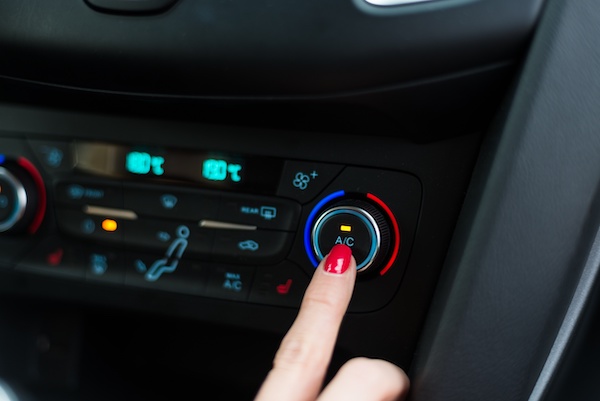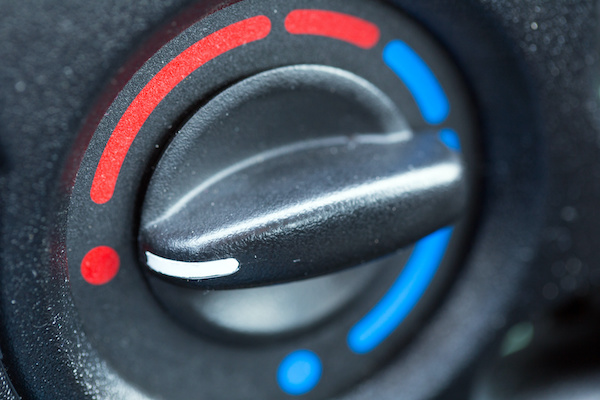Posted on 6/28/2021

Your vehicle's AC going out can turn an easy, comfortable ride into an unpleasant experience. Nobody would like to sit in a hot sweltering car, even for a few minutes. Your car AC not blowing cold air could be due to various reasons. Repairing could mean something as simple as recharging the AC refrigerant or something as complex as slipping the compressor clutch to restore the system to its top performance. So Why Is Your Car AC Not Blowing Cold Air? The AC Refrigerant Needs a Recharge Unless you operate in very hot regions, your AC might not need recharging for at least three years. Your vehicle's AC system is a pressurized enclosed system that constantly recirculates the refrigerant. Unfortunately, these pressurized systems tend to develop leaks at one time or another. As the leaking persists, the refrigerant level keeps reducing until it is way below the limit, impacting the AC performance. Of course, with a bit of knowledge, you can recharge the AC yourself. However, if ... read more
Posted on 5/27/2021
.jpeg)
Regular vehicle maintenance is essential for keeping your car functioning for many years. A blown head gasket is an issue that most car owners hope to avoid because a blown head gasket can be lengthy to repair. The good news is, this issue can be avoided with good vehicle maintenance and care. Here's what you need to know about blown head gaskets and the signs of a blown head gasket. What is a Head Gasket? A head gasket is an essential component of modern engines. This engine part prevents the coolant, oil, and combustion gasses in your vehicle from leaking. The head gasket is located between the cylinder head and engine block. Signs of a Blown Head Gasket Here are some of the common signs you have a blown head gasket. Bubbles in the Radiator A few bubbles in the radiator are normal, but if the bubbling persists, usually after 20 minutes of idling, a blown head gasket may be the culprit. If the head gasket is the problem, combustion gasses have entered the cooling system ... read more
Posted on 4/26/2021

Have you ever tried to start your car and had to turn it off because your car heater is not working? It can be a frustrating situation to deal with especially if you are stuck in a cold area in the middle of winter. Your car's heating system is tightly connected to its cooling system, therefore a minor issue with just one component can quickly evolve into a much more serious issue with the other. Knowing exactly how cars heat up and how they work is extremely important, as is knowing what might be causing them to fail. A possible reason why your heater isn't heating up is because the coolant level in your radiator is leaking. Leaks in the coolant can cause your radiator to overheat and stop working. The first step to take is to open up your hood and check the coolant levels. You should determine whether the level is adequate according to the manufacturer's recommendations. If the coolant is inadequate, then add more coolant until you get the desired effect or take it to yo ... read more
Posted on 3/18/2021
.jpeg)
Whenever you're in your car and you hear any noise come from your car's engine you know it needs immediate attention. It's never something you want to ignore or attempt to wish away; you want things looked at and taken care of. It's always helpful if you can have a slight idea of what the noise can be indicating is wrong or even if you can identify what the noise is. There are some specific noises you should be aware of so when you hear it you know to head directly to the repair shop! Five Noises to Listen For: Chirping or squealing in your engine. If you notice a squealing noise when you are accelerating or even when you start your vehicle there is a problem. There could be an issue with your accessory belt, or you may need a new serpentine belt. You may also have something wrong with your timing belt, fan belt or V-belt which all could be experiencing wear and tear. There's a clicking, popping, or snapping sound. If you are hearing any ... read more
Posted on 2/19/2021
.jpeg)
It is a known fact that your brakes are extremely essential to your vehicle. In knowing this, you need to make sure you are taking care of your brake system the best way that you can - this includes making sure there is brake fluid in your vehicle. Without brake fluid, you wouldn't be able to stop your vehicle. Your brake fluid is critical to the braking system of your vehicle because it is needed to perform its duty in all the right conditions. Many may not be aware, there are different types of brake fluid; here's what they are: DOT 3: This is glycol-based brake fluid and will be amber in color. It has the lowest dry boiling point you will be able to find. DOT 4: If you have an international vehicle this may be what is used. It is glycol-based but it has a higher boiling point. It will cost more due to having extra chemicals in it. The performance early on is better, but the boiling point will drop quickly in later stages. DOT 5: This is a silicone-bas ... read more